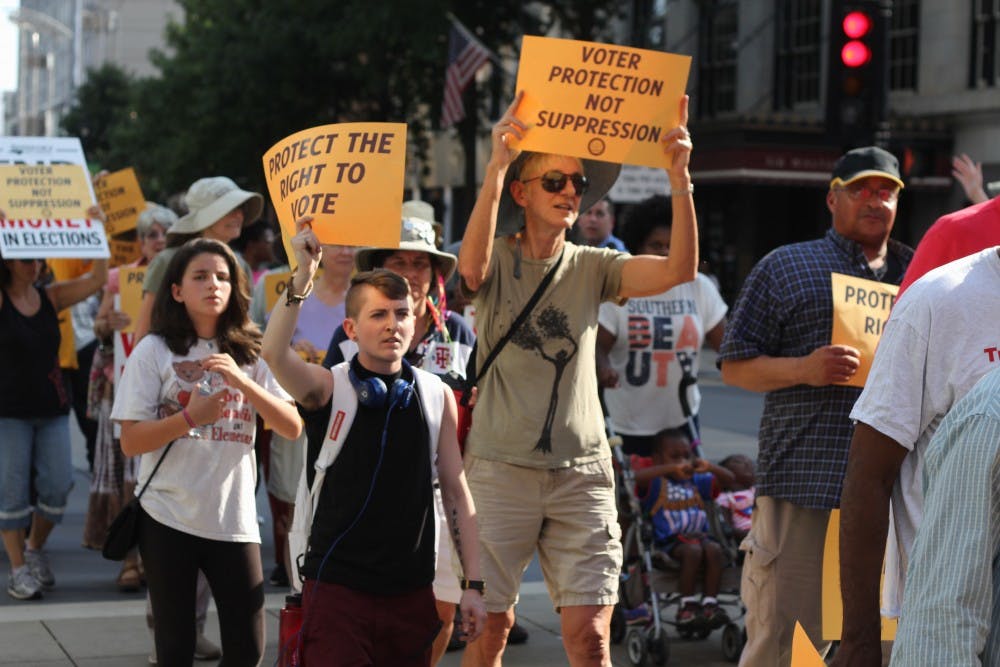Cries of, “Forward together, not one step back” rang through the streets of downtown Raleigh yesterday, where hundreds gathered for a voting rights rally. The state’s capitol was the terminus of the day’s leg of America's Journey for Justice, an 860-mile march from Selma to Washington, D.C., sponsored by the NAACP and a broad coalition of partner organizations.The marchers are spending 10 days in North Carolina to draw attention to its voting right record.
“It’s time to call names,” said state NAACP conference president the Rev. William Barber II. “Tom Tillis pushed through the worst voter suppression in the country.”
Barber referenced HB 589, which would prevent voters from registering during the early voting period and is currently facing legal challenges. Other speakers also urged the crowd to write letters to their representatives in support of the Voting Rights Amendment Act aimed at restoring and expanding protections guaranteed under the Voting Rights Act of 1965.
The campaign mobilized groups as diverse as Carolina Jews for Justice, The Sierra Club, Communications Workers of America and others from what Barber sees as a coalition seven years in the making. Speakers from these largely left-leaning groups discussed the benefits of expanded voting rights, also touching on issues such as public education, environmental protection, women’s rights and LGBTQIA rights, eliciting cheers from the crowd“We are in the midst of a third reconstruction,” Barber said. “If we don’t have the ballot, money wins. When we lose the right to vote, we lose the right to change our country.”
In an impromptu press conference after the rally, NAACP president and CEO Cornell William Brooks addressed a system in which politicians can rig the game with measures like gerrymandering and stricter voting laws.“There’s this notion that staying in office somehow justifies any and all manner of discrimination,” Brooks said. “When you come up with all kinds of extravagant, irrational, voter ID restrictions, it’s an imposition on people with disabilities and people of age.

“Are we going to tell them that it’s OK for you to spend an extra hour figuring out how to exercise a franchise that you fought for when you were our age? That is just profoundly, manifestly immoral.”
Barber brought Brooks' point back to North Carolina laws.
“So North Carolina GOP decides we can suppress African Americans right to vote by passing a very strict voter ID law, and it's true,” Barber said. "By passing it, 50 percent of African Americans don’t have a form of strict voter ID.”
While pointing out that such laws disproportionately affect black U.S. voters, the speakers were careful to frame this issue as one that affects all voters, both as a moral imperative and a practical one. As Barber put it, “when you mess with the right to vote, you mess with the heart of democracy.”
In the end, whether they came as a member of the NAACP, AFL-CIO, PFLAG or The Raging Grannies, the demonstrators shared a belief in the power of the vote. As the speeches came to an end, they took up a chant: “Show me what democracy looks like. This is what democracy looks like!”
People of all ages gathered for a voting rights rally at the state capitol Sept. 3. Photo by Hali Tauxe-Stewart.


